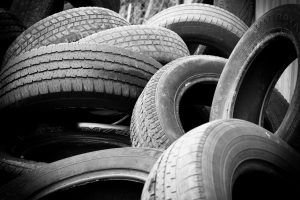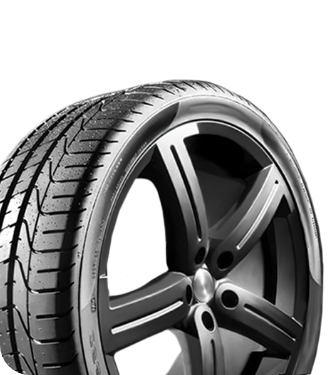

How To Identify and Fix a Slow Tire Leak
Tires |Tire quality is crucial to vehicle safety. A tire can leak, and the driver might not notice it for days or weeks. These slow tire leaks can cause many problems for drivers. Ahead, we’ll discuss slow tire leaks, from understanding their dangers to how to identify and fix them when they occur.
Recognizing the Quiet Threat of a Slow Tire Leak
While many of us worry about sudden tire blowouts and flats, gradual tire leaks are another vehicular danger you can’t overlook.
A slow tire leak often goes unnoticed until it’s too late. It begins with subtle signs: a slight decrease in tire pressure, a small change in handling, or an unexpected drop in fuel efficiency. The result is a nonfunctioning tire that can lead to sudden blowouts and loss of control.
Common Culprits of Slow Tire Leaks
Understanding the causes of slow tire leaks better equips you to tackle them effectively. Punctures from nails, sharp objects, or road debris are frequent sources of leaks, particularly in urban environments where these hazards are more common. Slow leaks can also come from valve stem issues if damage compromises the valve stem to the point where it slowly leaks air.
Rim leaks are another possible reason for slow air loss, usually from corrosion, improper installation, or an outside impact that compromises the seal between the tire and rim. These leaks can result in air seepage, which is difficult to notice until the issue becomes significant. Identifying the root cause is the first step in preventing further problems and maintaining optimal tire performance.
How to Identify a Slow Tire Leak
A slow tire leak may be gradual and almost imperceptible, but there are always signs that drivers should be on the lookout for. Identifying a slow leak early will ensure the safety and functionality of your tire and give drivers a chance to fix the damage before their wheel is completely compromised.
Visual Inspection
The first step in detecting a slow tire leak is to conduct a thorough visual inspection. Examine the tire tread closely for visible signs of damage. Look for embedded objects such as nails, screws, or other debris that might have punctured the tire. Also, check the sidewalls for cuts or bulges, which could cause a puncture and slow leak. Do this check every month or when you think your tires may have hit an object while driving.
Soapy Water Test
Small punctures in tires are notoriously difficult to spot with the naked eye. So, one useful method is the soapy water test. Mix a solution of water and dish soap in a spray bottle and apply it to the tire surface. If you see bubbles, this indicates air escaping from a puncture. This test is one of the simplest but most effective methods for spotting seemingly imperceptible tire damage.

Monitor Tire Pressure
Regularly monitoring tire pressure is also crucial in identifying slow leaks. Use a tire pressure gauge to check each tire’s pressure, adhering to the manufacturer’s recommended levels. If you notice that one tire consistently loses pressure more than the others, it could be a sign of a slow leak.
Many modern vehicles include tire pressure monitoring systems (TPMS), which alert drivers when their vehicle’s tires fall outside the recommended PSI range. If your vehicle doesn’t have this system, consider an aftermarket TPMS to make monitoring your tire pressure easier.
The Dangers of Neglecting a Slow Tire Leak
Some drivers may think a slow leak isn’t a big deal. After all, can’t they just refill the tire with air as needed? Yet ignoring a slow tire leak can have serious consequences that extend beyond mere inconvenience.
Fuel Inefficiency
Driving on underinflated tires reduces fuel efficiency, leading to more frequent trips to the gas station and increased costs over time. Fuel inefficiency affects your wallet and contributes to a larger carbon footprint, negatively impacting the environment.
Uneven Tire Wear
A neglected leak can lead to uneven tire wear, which can cause handling issues and compromise your vehicle’s overall performance. Uneven tire wear also shortens tire lifespan, necessitating earlier replacement and devaluing your tire purchase.
Regularly checking tire pressure and promptly addressing leaks is a simple yet crucial part of vehicle maintenance that can save you money and enhance your safety on the road. Taking the time to care for your tires prevents adverse outcomes for a smoother, more efficient driving experience.
Fixing a Slow Tire Leak
You know how to identify a slow tire leak, but how do you fix it? Many times, drivers can repair a slow tire leak at home with the right tools and some know-how. First, confirm the exact location of the leak. Remember, your tires may have more than one leak, so don’t stop at the first you see. If you discover a puncture, a tire repair kit with a plug is often a quick and effective fix, sealing the hole securely and allowing you to get back on the road in no time.

When Tire Leaks Are Beyond DIY Repairs
However, if you’re dealing with a more complex issue, such as a rim leak or a valve stem problem, you should seek professional assistance. Rim leaks can be tricky to diagnose and require special tools for proper repair. Similarly, valve stem issues may necessitate replacement to create a reliable seal.
Professionals like the tire experts at RNR Tire Express have the expertise, experience, and equipment to conduct a thorough repair, extending the life of your tires and ensuring your safety while driving. If your tires have any of the issues discussed, stop by our tire shop in Corpus Christi or one of our other stores nationwide.
Preventing Future Tire Leaks
Tire maintenance can prevent tire leaks and punctures before they happen. The better care you take of your vehicle’s tires, the more likely they are to stand up to objects and impacts that could cause punctures and slow leaks.
Rotating your tires at recommended intervals is integral to their longevity. Avoid road hazards and maintain proper alignment to minimize the risk of developing leaks.
Fix or Replace Your Tires With RNR Tire Express
Slow tire leaks can cause major trouble and are dangerous to drive on. If you need help fixing a puncture or need to replace a flat tire, RNR Tire Express is here to help. Our tire experts will diagnose problems with your tires and offer expert guidance on how to repair or replace them. Learn more about our services and browse our tire inventory online today!





